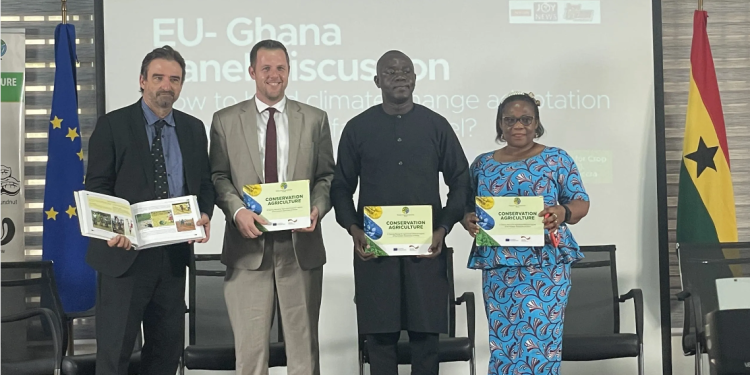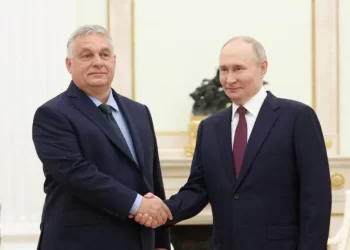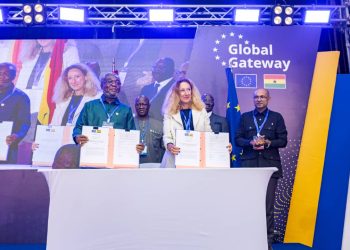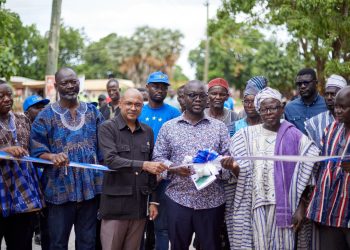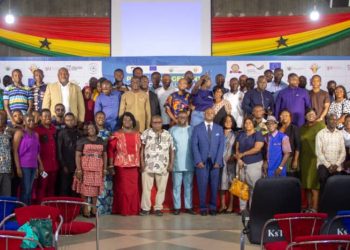The European Union (EU) has unveiled Conservation Agricultural manual at Panel discussion marking the annual EU Climate Diplomacy Week.
The Conservation Agriculture manual, a Joint collaboration between the EU, GIZ and the Ministry of Food and Agriculture contains wealth of knowledge and best practices essential to practice sustainable agricultural techniques.
The consolidated manual aims at equipping agriculture extension agents with standardized and effective climate-smart agriculture methods for the Savannah regions of Ghana.
This new manual goes beyond being a resource. It is now integrated into the curriculum to train extension agents in five Agriculture colleges.
Over 2,000 agriculture extension agents will benefit from it. In turn, many more smallholder farmers will profit from it.
The manual was unveiled at a panel discussion organised by the EU on, “How to build climate change adaptation capacity at farmer level”.
It was attended by various speakers from academia, government agriculture practitioners. civil society and the donor community.
They shared insights, experiences, and success stories related to implementing conservation agriculture practices across various geographical regions.
The event also fostered meaningful dialogue on the importance of international collaboration and knowledge exchange to spread solutions for climate change adaptation at the level of farmers.
Deputy Head of Mission, European Union in Ghana, Jonas Claes said, “the unveiling of the Conservation Agriculture Manual is a significant milestone in EU’s support for Ghana’s efforts towards promoting sustainable agricultural practices; working together with experts from the Ministry of Food and Agriculture, l am proud to say that the manual is practical and provides useful tips and guides to extension officers so they can, in turn, provide their knowledge to smallholder farmers.”
The German Ambassador, Daniel Krull, in his remarks emphasized the importance of addressing challenges associated with climate change and reaffirmed Germany’s commitment to actively contribute to alleviating its impacts in Ghana.
The EU Climate Diplomacy Week serves as a valuable platform for addressing the complex challenges posed by climate change.
Through initiatives like the Conservation Agriculture Manual, the EU reinforces its commitment to sustainable development. food security, and global climate action.
By actively embracing conservation agriculture practices, the EU and its partners aim to cultivate stronger, more resilient agricultural sectors while safeguarding the planet for future generations.
EU s commitment on resilience to climate change in Ghana is reflected in the EU-Ghana Agriculture Programme (EU-GAP).
It is the largest ongoing programme in Ghana, with a budget of EUR 132 million.
This programme helps the agriculture sector by building resilience against climate change in order to increase agricultural productivity, protect natural resources, and improve access to markets, capital and infrastructure (feeder roads and irrigation).
EU-GAP is located in the dryer areas of the country where resilience building is crucial. namely in the Upper West, Savannah, and North East regions.
The Resilience Against Climate Change (REACH) Project is part of the EU-Ghana Agriculture Programme.
It is under this project that the unveiling of the manual and panel discussion were organised as part of the EU Climate Diplomacy Week.






